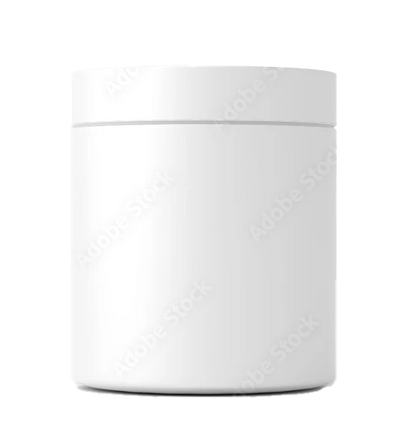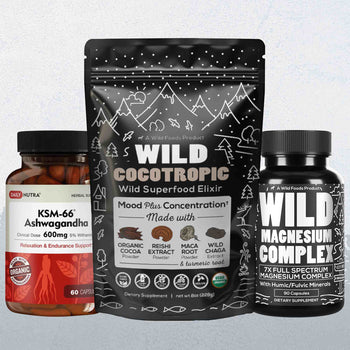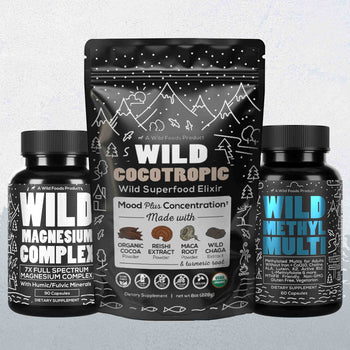Whey protein is an excellent option if you're looking for a quick and easy way to improve your health. Not only does it help to build muscle, but it also has a host of other health benefits. This article will outline some critical reasons for including whey protein in your diet. Whey protein is an incredibly beneficial supplement for athletes and fitness enthusiasts. It has a long history of use in both Eastern and Western cultures and has been shown to have various health benefits.
Many people know that whey protein is good for your health, and there are many reasons why this protein is so good for your body. Whey protein is a complete source of protein because it gives your body all of the essential amino acids it needs. It can help build and maintain muscle mass and improve your overall health.
Whey protein also helps keep blood sugar levels in a healthy range, helps keep fat from being stored, and improves brain function. Some studies show it may be effective in helping ward off diabetes and other conditions related to poor blood circulation. In addition to these health benefits, whey protein is a great energy source, helping you reach your daily goal.
May help reduce body fat and improve your overall energy levels
May help improve your muscle mass and strength
May help strengthen your immune system function
May help improve muscle recovery after workouts
May help reduce body fat
May help improve cognitive function
May help reduce the risk of chronic disease
May help reduce inflammation and swelling
Whey is a good source of calcium and other nutrients
Jump-start muscle recovery
If you're looking for a way to jump-start muscle recovery after a heavy workout, whey protein can help. It has been shown to reduce muscle damage by lowering oxidative stress and increasing antioxidant activity. This makes muscles stronger and more powerful overall. It can also help you build muscle, which is excellent for people who want to lose or maintain weight by building muscle. You may need to consume more protein than the average person to lose weight. If you are trying to build muscle, you must eat more protein than the average person.
Promote lean muscle growth
Whey is a rich source of branched-chain amino acids, which our bodies do not produce. These are vital for promoting lean muscle growth and can be found in dairy products, eggs, and fish. Whey is an excellent source if you are looking to bulk up or even build skeletal muscle while cutting weight. A study published in the Journal of Nutrition, Health, & Aging found that adults aged 50+ who consumed whey protein supplements for 12 weeks experienced increased muscle growth compared to adults who did not.
To stay healthy, you should include whey protein in your diet. It is an immunomodulator that has antibacterial, antiviral, and antifungal properties that can help you fight off illness and keep you from getting sick. In a study that was published in the Journal of Applied Microbiology, it was found that whey proteins could be fermented to make probiotics that are very good at killing bacteria. Whey proteins can also help boost your immune system's function so you can fight off illness.
Strengthen your immune system.
Whey can also help strengthen your immune system. A study in the Journal of Nutritional Science and Vitaminology found that eating whey protein could help your body make more immunoglobulins, which are important for your immune system to work well. To strengthen your immune system to fight seasonal allergies or other infections, you can consume whey protein to help boost your immune system function.
Improve gastrointestinal health
How can whey protein improve your gastrointestinal health? Well, it can by promoting the growth of probiotics. As mentioned previously, whey proteins are fermented to produce probiotics. Probiotics are beneficial bacteria that can be found in your gut. They can help improve your gastrointestinal health, boost your immunity, and even help reduce your risk of getting certain diseases. Whey proteins can help improve your gastrointestinal health by increasing your probiotic intake.
Benefit your bones
If you are looking for a way to strengthen your bones, you should look to whey. It can help prevent bone loss by increasing your calcium intake. A study in the Journal of Functional Foods found that eating whey protein could help increase the amount of calcium in your bones. It can also help prevent osteoporosis and increase bone density. If you want to improve your calcium intake, you can add whey protein to your diet.
How Much Whey Protein Should You Eat per Day?
Experts usually fall in the range of 1 to 1.5 grams of protein per pound of body weight for men and .75 to 1.25 grams for women.
A 175lb male equals 175 to 265 grams of protein daily. For a 125lb female, that would be between 95 grams and 156 grams of protein.
If eating three meals a day, it breaks down to the following:
Men: 58g - 88g of protein per meal
Women: 31g to 51g of protein per meal.
Most of us find it hard to eat that much protein at once, so whey protein powder is a great way to get more protein into our diets. I don't know about you, but I feel sick consuming 150g of protein daily. It's a slog to eat that much. No thanks. On the other hand, drinking a protein shake helps me get closer to my target protein per gram of day goal of eating more protein.
Whey Protein Research and Studies
Last year, a review of whey effects on key cardiometabolic risk factors found that whey protein improved the lipid profile, reduced high blood pressure, improved blood vessel function, and increased insulin sensitivity and glucose tolerance. One study found that higher whey protein intake reduced the risk of stroke and heart disease by around 8 percent, and another found it helped lower blood pressure and enhanced vascular function. Early studies suggested whey protein might help reduce high cholesterol levels, particularly bad LDL cholesterol. One study found that whey protein may help lower oxidative stress, increasing the body's abundance of glutathione.
Because supplementing with glutathione provides next to no health benefits when consumed directly, studies show that whey proteins are the most cost-effective method to increase your glutathione intake and have several other health benefits. Studies show that routinely adding whey protein to your diet may help lower markers of chronic inflammation, which reduces the risk of adverse health effects. While some evidence suggests taking whey protein as part of a resistance training program increases lean muscle mass and strength, other studies have found no benefits.
Studies have shown that protein supplements dramatically increase the size and strength of muscles of healthy adults performing resistance exercises, like lifting weights. Increasing protein intake is recommended for individuals trying to lose weight or gain muscle. A highly active or athletic individual looking to lose abdominal fat while maintaining lean muscle mass can incorporate a high protein intake into their diet (0.68-1g/lb bodyweight).
A less active lifestyle requires much less protein (0.36 g/lb of body weight) [57, 51]. Experts recommend protein intakes of 56-91 grams daily for men and 46-75 grams daily for women [58, 59 ].
Whey protein is also great at managing lean, powerful muscles essential to burning fat and losing weight. Whey is an excellent source of protein, and it is rapidly absorbed and used by your body. Whey is a convenient, high-quality protein option boasting all nine essential amino acids, making it a safe choice for most individuals looking to gain muscle or bulk up.
High-quality protein sources like whey are especially effective. High-quality protein sources, such as whey, are proven quite effective, mainly because high-quality sources have a Leucine content in their protein. Although plant-based protein sources are becoming popular, whey protein is generally recognized as having superior health and well-being benefits when part of a high-protein diet. The positive role of dietary proteins such as whey has been established as contributing to weight loss in multiple studies conducted by the National Institutes of Health.
The benefits of whey protein also extend to those from increased protein consumption, like enhancing muscle gains when combined with resistance training, limiting muscle loss on calorie-restricted diets, and moderately limiting fat growth on periods of high calorie intake. The proteins and specific bioactive peptides in whey make it a superfood for fat loss and lean muscle-building. In various forms, whey protein can be used in almost any application to cut down on or substitute for eggs, milk, cream, cheese, butter, oils, and other high-fat, expensive ingredients.
By including more whey protein as an alternative to heavy cream, eggs, milk, or butter in food products, not only will you reduce fat and calories, you will help to give aging consumers a slight boost in their metabolism. Plus, eating foods rich in protein can be tremendously helpful in muscle building, improving energy, and losing body fat.
High-protein diets are also associated with increased metabolism, the number of calories your body burns daily to function properly. Because of the thermogenic effects, the body burns more calories after eating high-protein meals, which leads to weight loss.
Those struggling with maintaining low blood sugar can take whey protein before a high-carbohydrate meal to lower their blood sugar levels post-meal [29, 30]. The protein from whey also helps decrease the glucose absorption rate in the bloodstream; this helps with maintaining insulin levels. For individuals who do not have diabetes, taking protein with their oral glucose usually reduces their average blood glucose increase.
Whey Protein May Help With Type 2 Diabetes
Type 2 diabetes is a chronic condition characterized by elevated blood sugar levels and abnormal functioning of insulin. Scientists have shown that whey may lower the risk of developing type II diabetes. Generally, high-fat diets cause excess weight gain, adiposity, and metabolic complications associated with a higher risk for type 2 diabetes and fatty liver disease. Subjects lost 6.1% of body fat, reducing their risk for conditions associated with increased body fat levels.
One group also kept a lower body weight and a higher proportion of lean body mass than the control group, which ate the same number of calories daily but didn't add whey. A 12-week study found that people who ate less than 500 calories a day and took a leucine-rich whey protein shake lost more body fat and kept more of their lean muscle mass.
Researchers found that consuming a protein supplement with 20 grams, consisting of 14 grams each of whey protein and casein, along with six grams each of free amino acids, resulted in more significant gains in overall body mass, fat-free mass, hip-cage mass, and muscular strength than people who took a carbohydrate-based placebo. A study conducted in Germany found that when older adults ate whey protein, it positively affected muscle protein synthesis, muscle mass, and muscle strength.
People typically use whey protein as a supplement and resistance training to help enhance muscle protein synthesis and facilitate lean mass gain. Athletes and bodybuilders who work out are likely to have depleted protein levels; when they take whey protein supplements, their protein levels are replenished, and their muscles will grow more quickly.
A significant review study found that higher doses of whey protein supplements (greater than or equal to 20 grams/day) significantly reduced C-reactive protein (CRP), a key indicator of inflammation in the body.





























